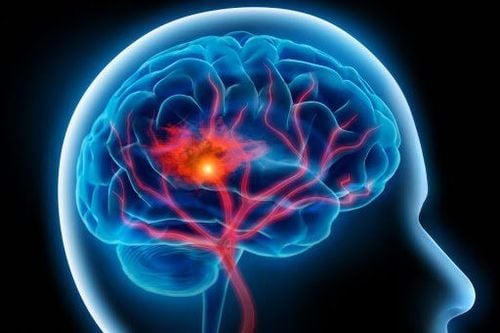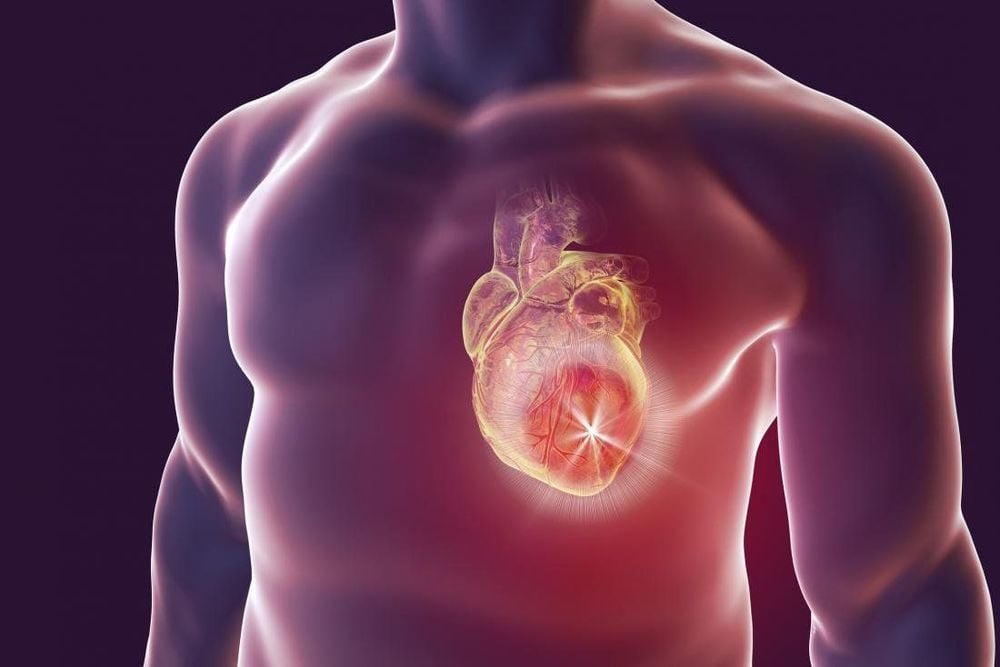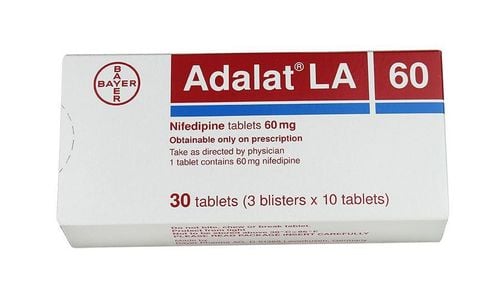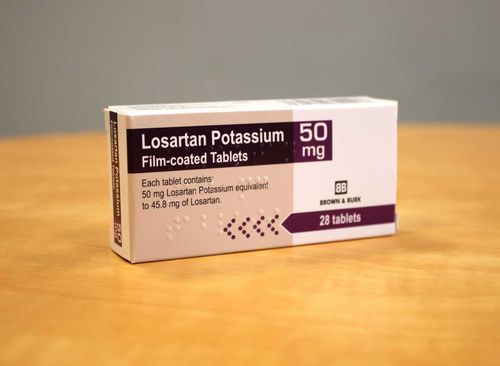This is an automatically translated article.
The article is professionally consulted by Dr. Phan Dinh Thuy Tien - General Internal Medicine - Department of Examination & Internal Medicine - Vinmec Nha Trang International General Hospital.High blood pressure is a bad factor for everyone's health. When blood is pushed with too much pressure into the arteries, this can cause a host of problems that damage the entire circulatory system. Accordingly, it is necessary to know the complications of high blood pressure in order to understand why it is important to treat high blood pressure.
If not treated in time, high blood pressure can cause the following complications:
1. Heart attacks
When blood moves through the body with too much force, this pressure can create small tears in the blood vessels, forming scar tissue. This can become an adhesion site for debris such as fat and cholesterol. Those trapped particles form clumps called plaque, which impede the flow of blood in the blood vessels. Consequentially, heart attacks, in acute myocardial infarction or exercise angina, are the result of a blockage in the blood supply to the myocardium and are often caused by High Blood Pressure .2. Stroke
High blood pressure is a major risk factor for brain stroke. The mechanism is that blood pressure loosens the atherosclerotic plaque, causing blockage of blood vessels leading to the brain or right in the brain. At this point, a stroke can occur, causing brain tissue damage as it no longer receives vital nutrients and oxygen to the affected area and brain cells begin to slowly die. Patients will have a distorted mouth, slurred speech, paralysis of limbs and lifelong disability.
Huyết áp cao là một yếu tố nguy cơ chính của đột quỵ não
3. Cerebral aneurysm rupture
If blood pressure is too high due to high blood pressure and suddenly it will cause a hemorrhagic stroke. V circuit . Aneurysms tend to enlarge slowly and become weaker as they grow. If left undiagnosed or untreated, they can cause a serious form of stroke called a hemorrhagic stroke. The patient's prognosis becomes more critical if the blood pressure is not lowered in time.4. Dilation of aortic aneurysm
The aorta is the first artery that carries blood away from the heart and is the site of the greatest impact when blood pressure is high. Similar to the mechanism of endovascular damage caused by increased blood pressure, the long-term aorta will be dilated, enlarged, and fragile. This event, when it occurs, usually has a very low survival rate, it is difficult for the patient to pass because the aorta has inherent vascular pressure and large size, so the blood loss from the vessel is very sudden and rapid.
Động mạch chủ là đoạn động mạch đầu tiên dẫn máu ra khỏi tim và là nơi chịu tác động mạnh mẽ khi huyết áp cao
5. Heart failure
Heart failure does not mean that the heart has stopped working, but that the contractile function of the heart is no longer guaranteed, not supplying enough blood to the rest of the body. At this point, the myocardium may thicken due to high blood pressure, in order to exert more force against the tone of the peripheral vascular wall. In the long run, the heart will begin to enlarge as the myocardium gradually dilates as it has to work harder to pump blood, heart failure begins. At this stage, appropriate treatment cannot restore heart function to its original state, but can help improve the contractility of the heart muscle to some extent.6. Kidney failure
High blood pressure is the second most common cause of chronic kidney failure, after diabetes. When the blood vessels in the kidneys are weakened and narrowed due to damage from high blood pressure, it becomes difficult for the kidneys to perform their functions of filtering blood and waste, forming urine. From there, toxins and excess water are trapped in the body, causing swelling and can increase blood pressure further, creating a vicious cycle of dangerously high blood pressure. very difficult to control.7. Visual impairment
High blood pressure can damage the delicate blood vessels in the eyes, reducing blood flow and even leading to ruptured blood vessels. This is called hypertensive retinopathy, and can cause bleeding in the eye, blurred vision, or blindness. Furthermore, high blood pressure can also cause fluid to build up in the retina, distorting or reducing vision due to damage to the optic nerve.8. Peripheral artery disease
The plaque that builds up due to plaque buildup in high blood pressure can reduce blood flow to the arteries in the legs, which can cause pain, cramping, and numbness in the feet, which can gradually spread to the buttocks. after vigorous activity and progressing with only light walking. Peripheral artery disease tends to go undiagnosed because people often think it's a normal sign of aging. However, the condition has also been identified as a high risk of stroke or heart attack and can lead to gangrene and amputation. Treatment includes lowering blood pressure with lifestyle changes, medication, and sometimes surgery.9. Metabolic syndrome
High blood pressure is one of the features that can lead to a diagnosis of metabolic syndrome, a group of factors that make a person more likely to develop diabetes or develop cardiovascular disease or stroke. Although when it comes to metabolic syndrome, the patient can be resolved with lifestyle changes and medication; if not detected early and actively prevented, dangerous events may occur and cannot be restored to the original.
Huyết áp cao là một trong những đặc điểm có thể dẫn đến chẩn đoán hội chứng chuyển hóa
10. Cognitive decline
People with high blood pressure are more likely to be prone to cognitive decline, which means their ability to think, learn and remember things is impaired than their peers or occurs earlier. in the general population. Some studies show that people with high blood pressure in middle age have a higher risk of developing dementia as they age. At the same time, there is evidence that the younger the age when blood pressure is controlled, the lower the risk of cognitive decline later in life, if it occurs later in life.11. Erectile Dysfunction
Anything that disrupts blood flow can cause erectile dysfunction and that includes high blood pressure. Indeed, without adequate blood flow, it is difficult for a man to achieve or maintain an erection. On the other hand, high blood pressure can also interfere with ejaculation and reduce sex drive.Thus, with so many serious health problems caused by high blood pressure, it is essential to understand why high blood pressure is treated and to adhere to it. Since then, when high blood pressure is stabilized, patients will be more assured of their quality of life and long life. Therefore, when suspecting that they may have high blood pressure, each person needs to see a doctor soon for advice and intervention, to protect their health sustainably.
Periodic health check-ups help to detect diseases early so that there is a treatment plan for optimal results. Currently, Vinmec International General Hospital has general health checkup packages suitable for each age, gender and individual needs of customers with a reasonable price policy.
The patient's examination results will be returned to the home. After receiving the results of the general health examination, if you detect diseases that require intensive examination and treatment, you can use services from other specialties right at the Hospital with quality treatment and services. outstanding customer service.
Please dial HOTLINE for more information or register for an appointment HERE. Download MyVinmec app to make appointments faster and to manage your bookings easily.













